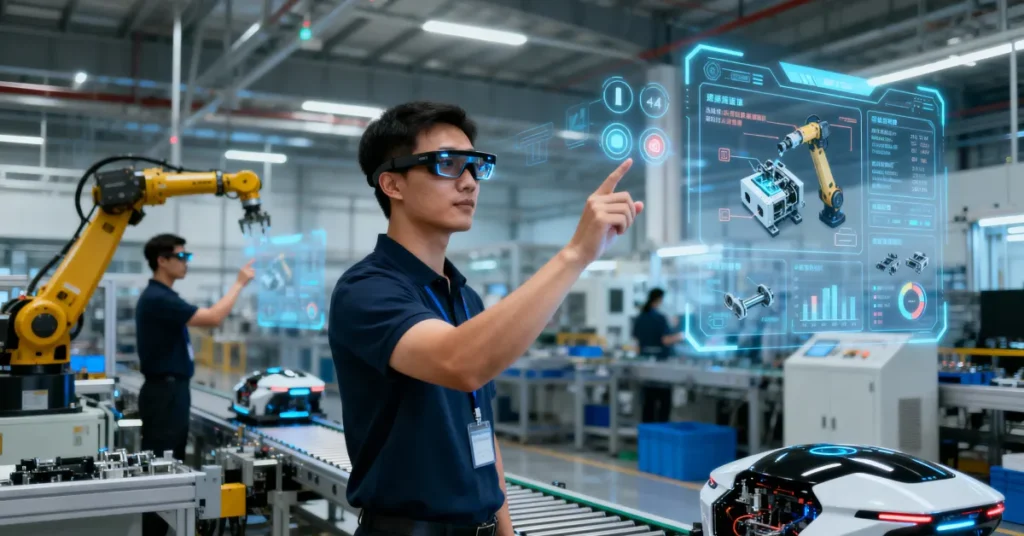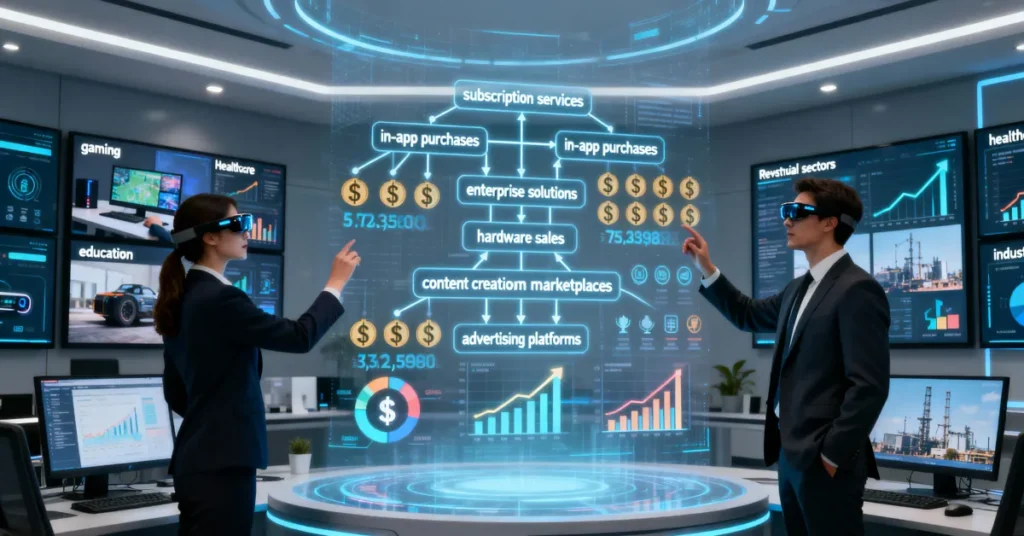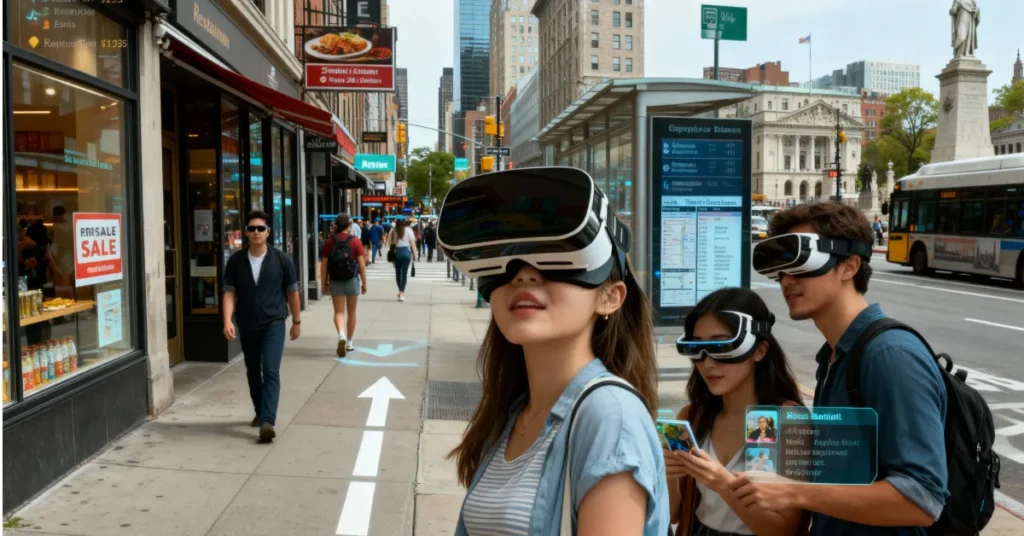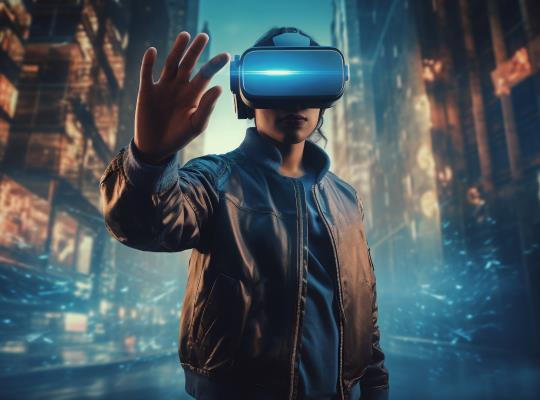The future of extended reality is not a distant vision anymore — it is already unfolding across industries, shaping how organizations innovate, how people connect, and how technology integrates into daily life. Extended reality (XR), which combines virtual reality (VR), augmented reality (AR), and mixed reality (MR), is no longer just an experimental field. It is a transformative force that is projected to drive billions of dollars in economic value and fundamentally redefine the digital landscape.
For businesses, governments, and educational institutions, understanding the future of XR is critical. This isn’t about adopting yet another technology trend; it’s about preparing for a long-term shift where physical and digital boundaries blur seamlessly. In this context, working with a specialized XR company such as Quantile Corp, which offers industry-focused XR services, becomes essential for organizations that want to stay ahead.
In this complete guide, we will explore the extended reality future — what it means, the trends shaping it, the opportunities and challenges, and what businesses can expect in the years ahead.
Table of Contents
What Extended Reality Means in Today’s Context
Before discussing the XR future, it’s important to revisit what extended reality actually is. XR is an umbrella term that encompasses:
- Virtual Reality (VR): Fully immersive environments where users are completely engaged in a digital world.
- Augmented Reality (AR): Digital overlays and interactive elements projected onto the real world.
- Mixed Reality (MR): The integration of real-world and digital objects that interact with each other in real time.
The extended reality future is not about choosing one technology over the other, but rather how VR, AR, and MR converge to solve problems, create immersive experiences, and deliver innovative solutions across industries.
This convergence makes the future of extended reality one of the most disruptive forces we are likely to see in the coming decade.
The Extended Reality Future: A Data-Driven Outlook
To gain credibility and perspective, it’s useful to look at research and industry reports on the future of XR:
- The global XR market, valued at $55.9 billion in 2023, is projected to exceed $450 billion by 2030 (Statista).
- PwC projects that 23 million jobs will incorporate XR technologies by 2030, particularly in training, healthcare, and remote collaboration.
- Gartner predicts that by 2027, over 40% of large enterprises will use XR for workforce training, design, or customer engagement.
These statistics highlight how quickly the extended reality future is accelerating and why businesses need to prepare now.
The Dimensions Shaping the Future of XR
The future of extended reality is being shaped along three major dimensions: technological evolution, industry adoption, and human interaction.
Technology Evolution in the XR Future
The hardware and software that power XR experiences are becoming more advanced and more accessible.
- Hardware Evolution: Bulky headsets are being replaced by lightweight AR glasses and more comfortable VR headsets. Devices like Apple Vision Pro and Meta Quest Pro are paving the way for mass adoption. Eventually, XR hardware may blend into everyday eyewear or even holographic displays.
- AI and XR Integration: Artificial intelligence will drive personalization in XR. AI-powered XR will recognize objects, adapt environments, and analyze real-time data to deliver smarter immersive experiences.
- Connectivity: With 5G and future 6G networks, low-latency XR experiences will become seamless, enabling real-time, cloud-rendered environments
These advancements suggest that in the XR future, the technology itself will fade into the background — what matters is the experience.
Industry Adoption of Extended Reality
The extended reality future will be defined by how different industries adopt XR:
- Healthcare: XR will support remote surgeries, virtual patient care, and rehabilitation programs. Surgeons will collaborate across geographies using immersive simulations.
- Education: Virtual classrooms and labs will allow personalized, interactive learning experiences. The future of XRwill make immersive education accessible worldwide.
- Manufacturing: Factories will use XR for digital twin simulations, worker training, and predictive maintenance. This reduces risks and improves efficiency.
- Tourism & Heritage: Immersive XR experiences will allow virtual exploration of historic sites and tourist destinations.
Adoption will be industry-specific rather than one-size-fits-all. This means customized XR services offered by companies like Quantile Corp will become critical.

Human Interaction in the XR Future
Perhaps the most transformative aspect of the extended reality future is its impact on human behavior and interaction.
- Workspaces: Meetings and collaborations will take place in immersive XR environments, replacing conventional video calls.
- Social Interaction: Virtual presence will become as important as physical presence. People will socialize, shop, and even attend events in XR.
- Ethics and Well-being: The future of XR also brings questions around privacy, addiction, and the psychological impact of immersive environments.
An experienced XR company must design solutions that enhance human experiences while being mindful of these concerns.
The Rise of the XR Economy
The extended reality future will bring with it a new economy — one where digital assets, immersive services, and virtual marketplaces thrive.
- PwC estimates XR could contribute $1.5 trillion to global GDP by 2030.
- Virtual goods, immersive shopping, and XR-based commerce will become mainstream.
- New career roles such as XR designers, immersive storytellers, and XR strategists will emerge.
For businesses, this means new revenue streams, but only if they position themselves early. Partnering with a forward-looking XR company like Quantile Corp can provide the expertise needed to thrive in this new economy.

Opportunities and Challenges in the Extended Reality Future
Opportunities
- Efficiency Gains: Safer, faster training and development cycles.
- Customer Engagement: Deeper, more interactive experiences.
- Innovation: Competitive advantage for early adopters.
Challenges
- High Initial Costs: Infrastructure and hardware investments remain significant.
- Scalability Issues: Many XR platforms are still evolving
- Regulation and Privacy: Clear frameworks are needed for data protection and ethical use.
The future of XR lies in overcoming these barriers through careful strategy and expert XR services.
XR Companies in the Future
The extended reality future cannot be achieved without specialized XR companies bridging the gap between vision and execution
Companies like Quantile Corp offer:
- End-to-end XR services, from consulting to development.
- Industry-specific solutions tailored to healthcare, education, manufacturing, and beyond.
- Strategic guidance on integrating XR into business operations.
The future of extended reality will reward businesses that invest in professional partnerships to ensure adoption is both smooth and impactful.
Long-Term Outlook of the XR Future
Looking further ahead, the extended reality future envisions a world where XR is seamlessly integrated into everyday life:
- Seamless Blending: Physical and digital interactions will merge effortlessly.
- Standard Platform: XR will become the default environment for communication, creativity, and commerce.
- Global Integration: Industries and societies worldwide will adopt XR as part of their core functioning.
The future of XR will be shaped not only by technology but also by the values and choices of the organizations and individuals who use it.

Conclusion
The future of extended reality represents one of the most transformative opportunities of our time. With advancements in hardware, AI, and connectivity, and with adoption accelerating across industries, the extended reality future will redefine how we work, learn, interact, and innovate.
Organizations cannot afford to wait. To prepare for the XR future, businesses need expert guidance and tailored solutions. This is where Quantile Corp, a trusted XR company, plays a pivotal role. By offering specialized XR services, Quantile Corp ensures businesses are not just participants in this shift but leaders of it.
The XR future is here — and it promises to reshape industries, economies, and human experience on a global scale. The question is not if extended reality will become mainstream, but how quickly your organization will embrace it.
The XR future will be globally connected, removing physical and technical barriers to immersive experiences.



